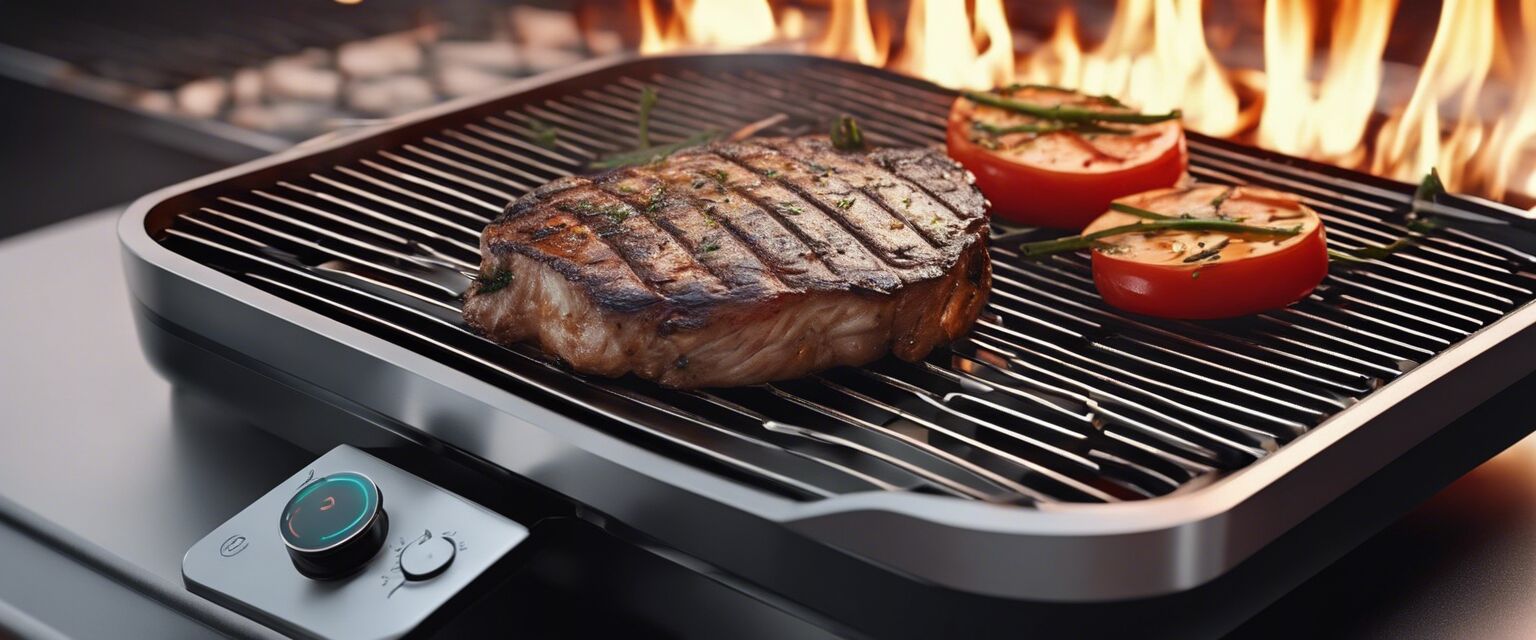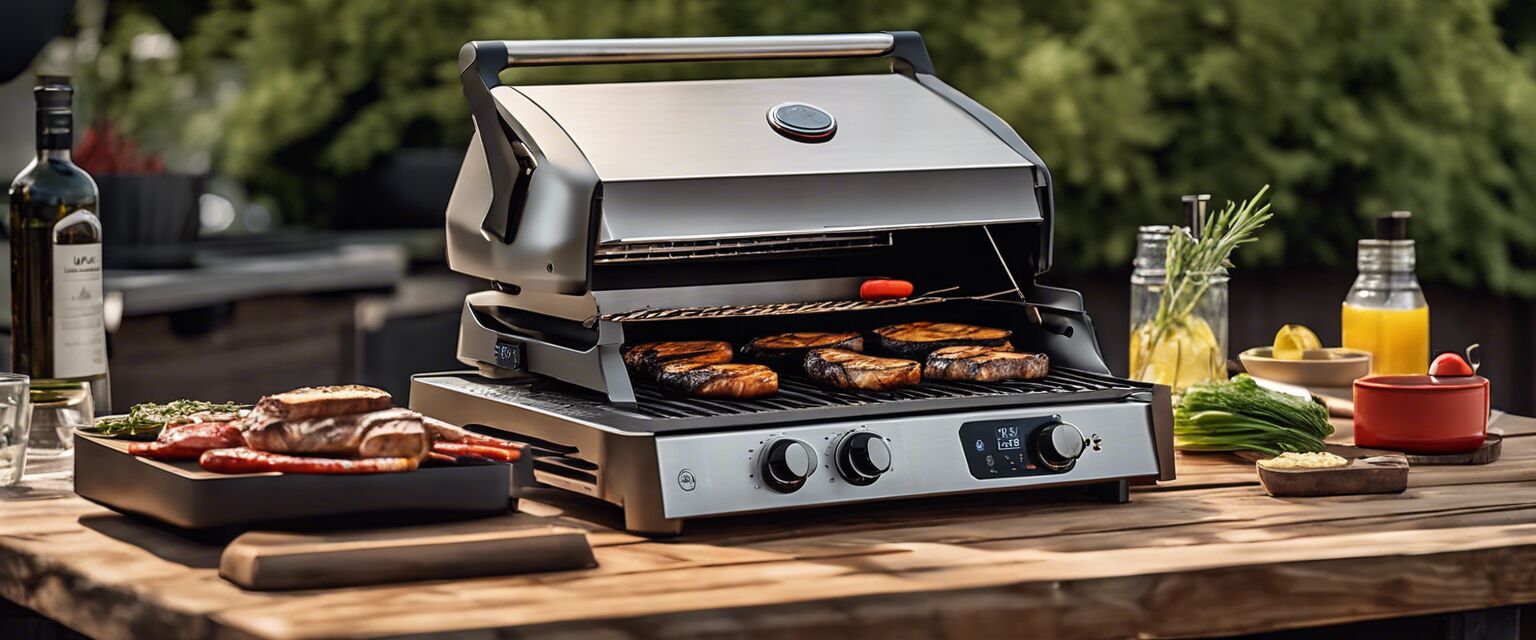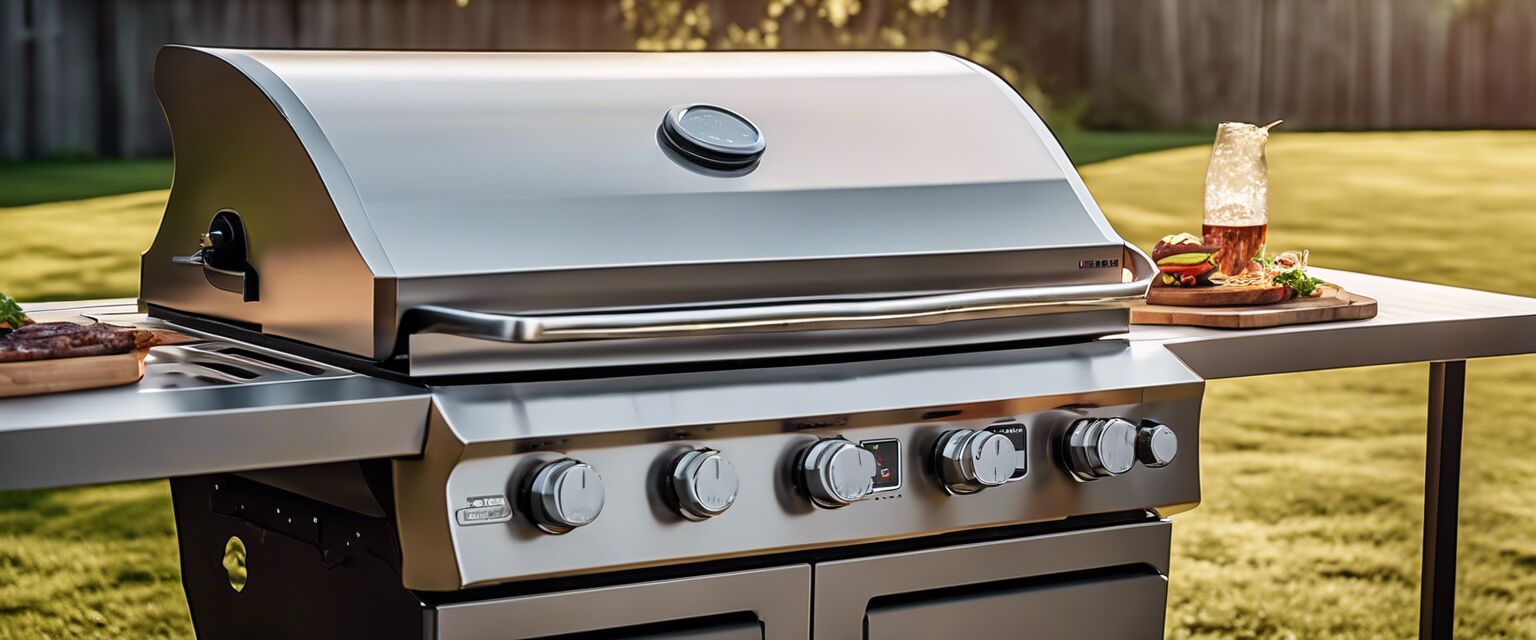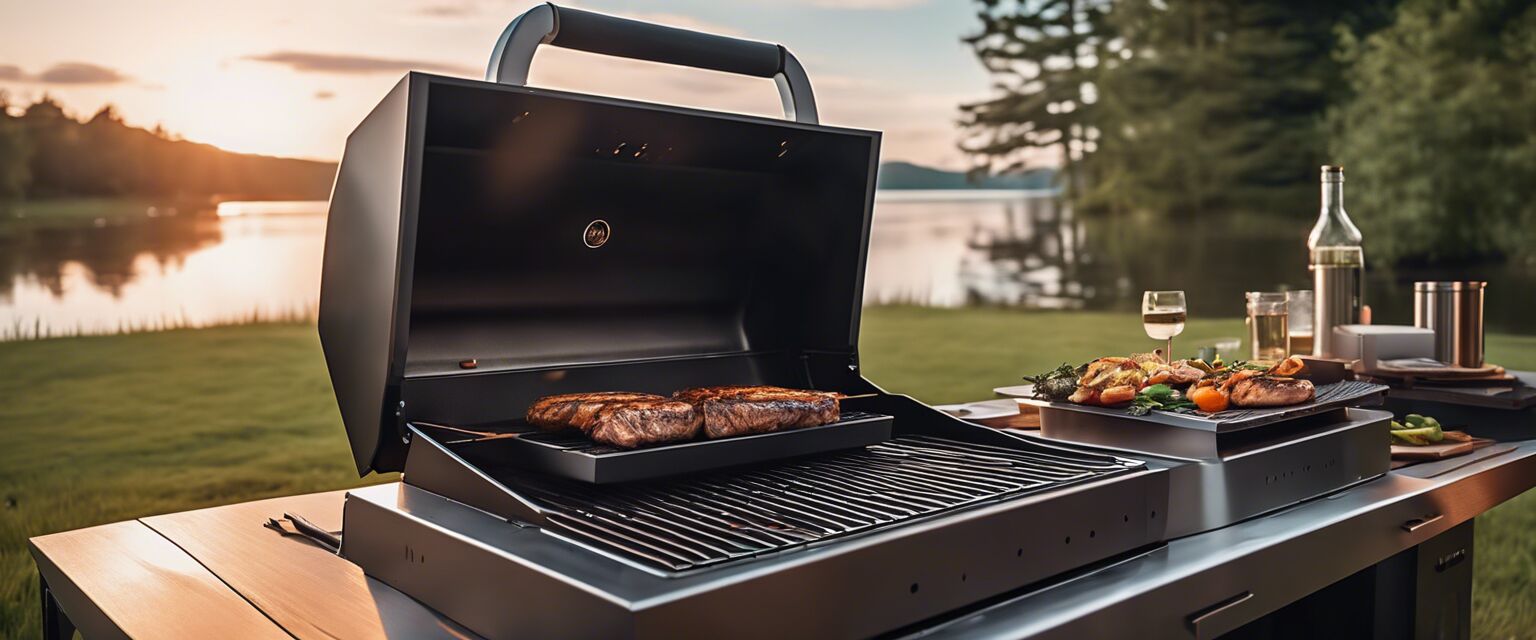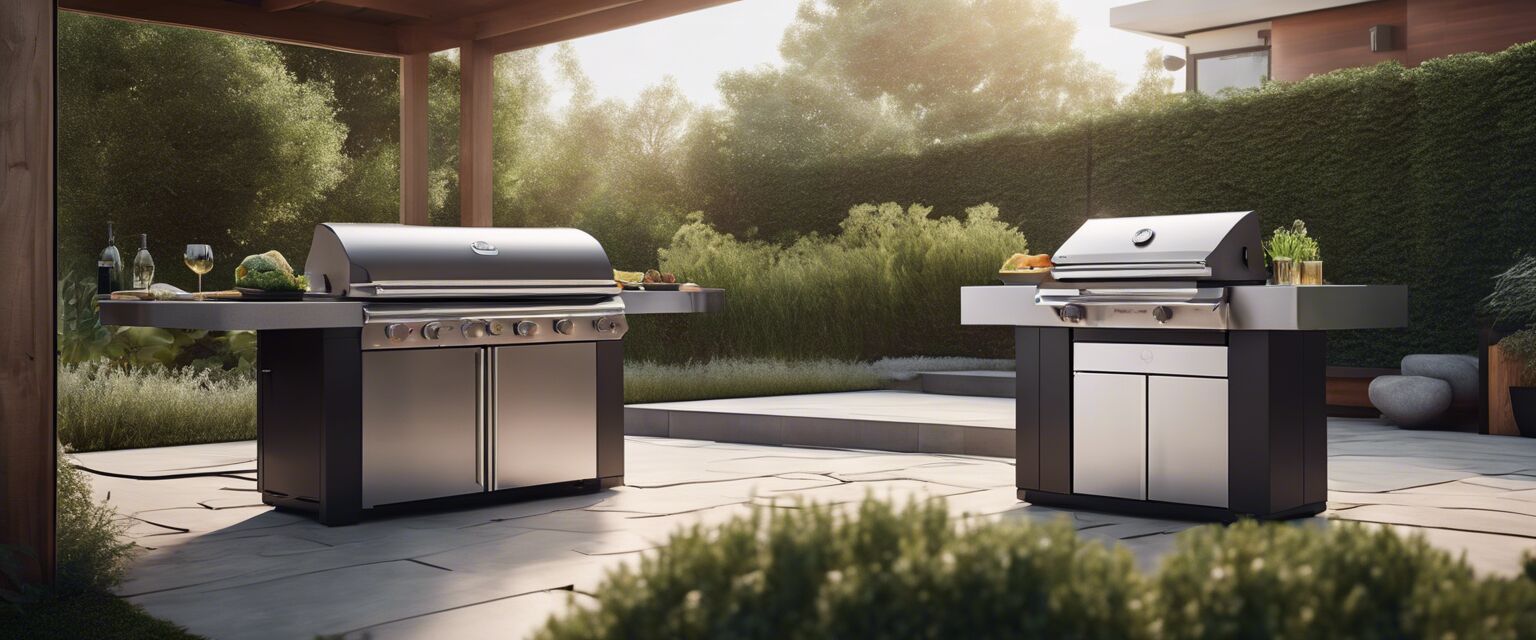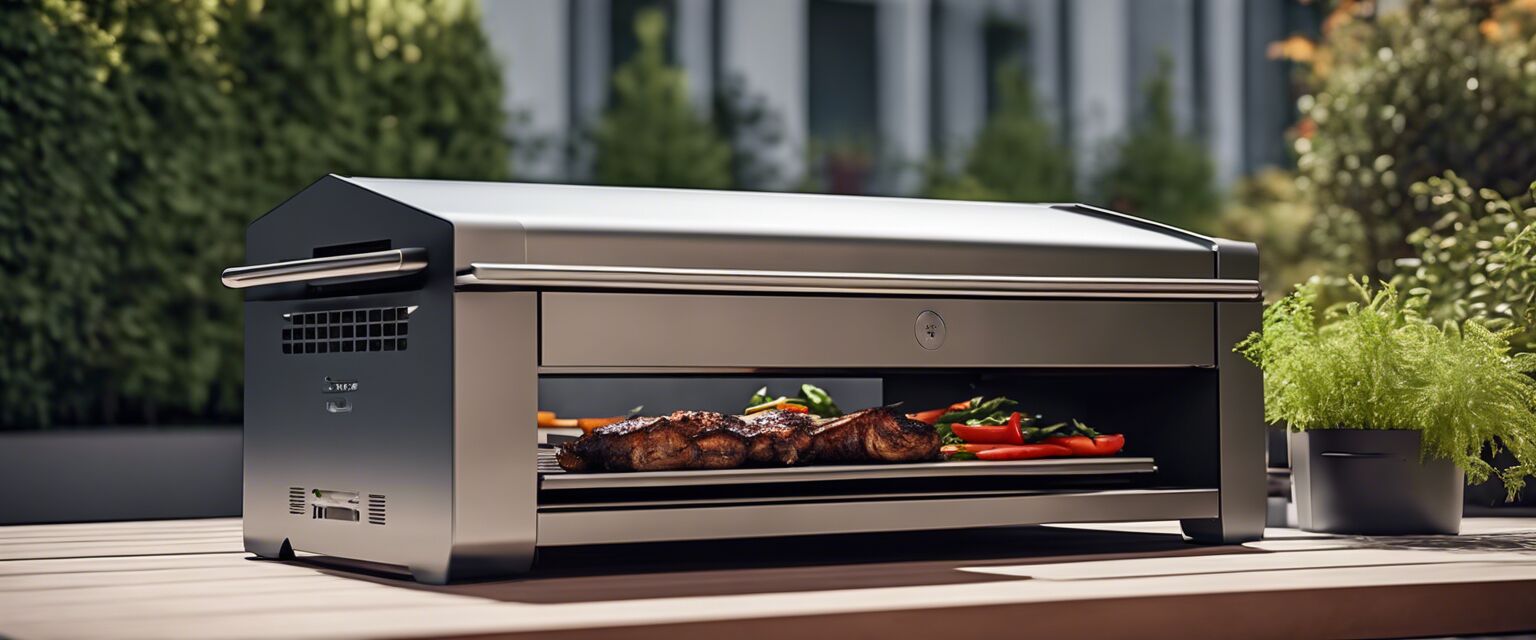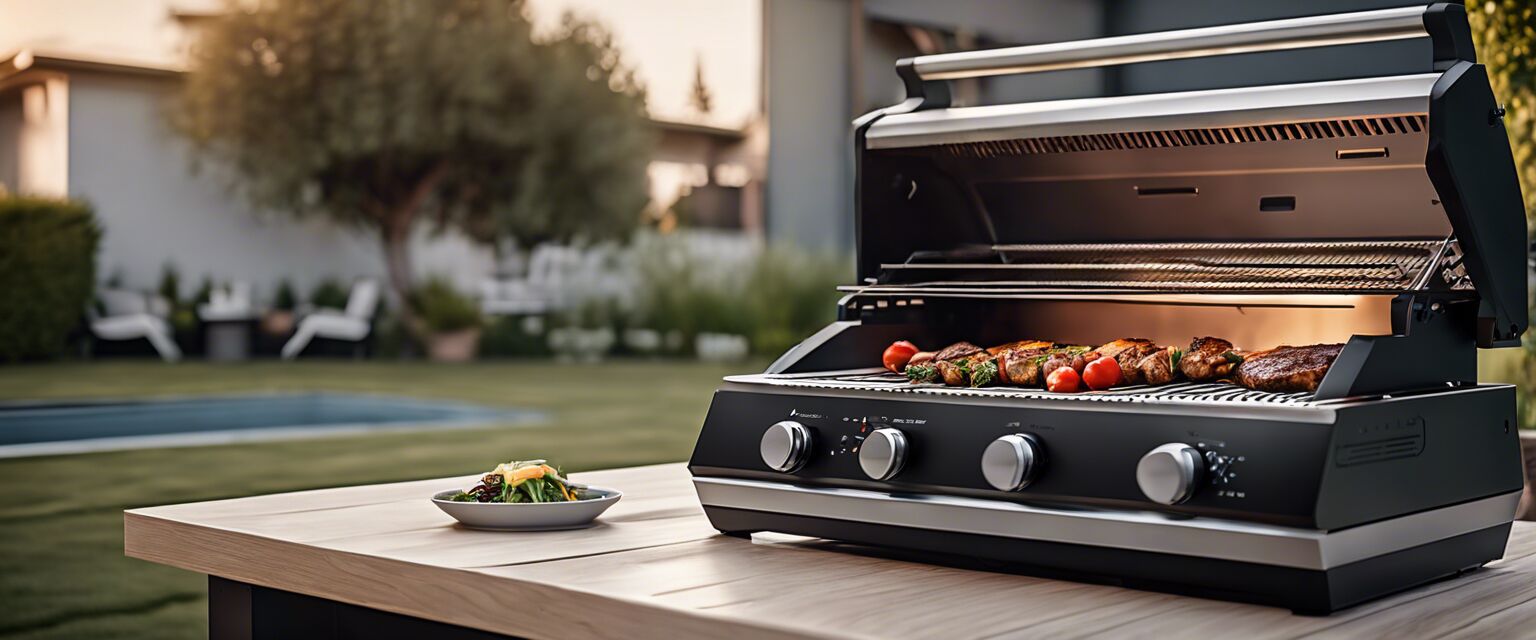
How to choose a smart grill
Key takeaways
- Understand the essential features of smart grills.
- Consider the functionalities that fit your grilling style.
- Set a budget that aligns with your needs.
- Explore different types of smart grills and accessories.
Smart grilling technology has revolutionized the way we cook outdoors. With features like temperature control, connectivity, and automated cooking, choosing the right smart grill can enhance your BBQ experience. This guide will help you navigate the key aspects to consider when purchasing a smart grill, ensuring that you make an informed decision.
What is a smart grill?
A smart grill is an advanced outdoor cooking appliance that allows you to control and monitor your grilling experience through digital technology. These grills often have built-in Wi-Fi or Bluetooth connectivity, enabling you to adjust settings remotely via a smartphone app. Smart grills can simplify cooking by providing precise temperature controls and even offering recipes and cooking times.
Essential features to look for
When choosing a smart grill, it's crucial to evaluate the features that will best suit your grilling habits. Here are some key features to consider:
| Feature | Description |
|---|---|
| Wi-Fi/Bluetooth Connectivity | Allows you to control the grill remotely through a smartphone app. |
| Temperature Control | Provides precise temperature readings and adjustments for optimal cooking. |
| Cooking Alerts | Notifies you when your food reaches the desired temperature. |
| Recipe Guidance | Offers pre-programmed recipes and cooking tips for various dishes. |
| Integrated Thermometer | Monitors food temperature without opening the grill. |
Types of smart grills
Smart grills come in various forms, each catering to different needs and preferences. Hereâs a quick overview of the main types:
- Gas Smart Grills: Easy to use and quick to heat, perfect for quick meals.
- Electric Smart Grills: Ideal for indoor grilling, providing consistent results.
- Charcoal Smart Grills: For those who love the smoky flavor, now with smart controls.
- Pellet Grills: Combines convenience and flavor, using wood pellets for cooking.
Budget considerations
Smart grills can range significantly in price, from budget-friendly options to high-end models. Here are some tips for setting your budget:
- Determine how often you plan to grill.
- Assess the features you prioritize.
- Compare prices across different brands.
- Consider additional costs such as accessories and fuel.
Popular smart grill brands
When shopping for a smart grill, it's helpful to know some of the popular brands that offer reliable products:
| Brand | Key Features | Price Range |
|---|---|---|
| Weber | Wi-Fi connectivity, integrated thermometer | $$$ |
| Traeger | Pellet grilling, recipe app | $$$ |
| Napoleon | Bluetooth technology, versatile cooking options | $$$ |
| Kamado Joe | Charcoal flavor, smart monitoring | $$$ |
Grill accessories to consider
Enhancing your grilling experience doesn't end with choosing a grill. Consider the following accessories:
- BBQ Tools: Essential tools for grilling, including spatulas and tongs.
- Grill Accessories: Items like grill mats and skewers for added versatility.
- Grill Covers: Protect your investment from the elements.
- Outdoor Kitchens: Create a complete cooking area for entertaining.
- Smart Thermometers: Ensure perfectly cooked meat every time.
Maintenance tips for smart grills
To keep your smart grill in optimal condition, follow these maintenance tips:
- Clean the grill regularly to prevent buildup.
- Check and calibrate the thermometer for accuracy.
- Store the grill properly during off-seasons.
- Monitor the software updates for your grill app.
Conclusion
Choosing a smart grill can greatly enhance your outdoor cooking experience. By understanding the essential features, types, and budget considerations, you can make an informed decision that fits your grilling needs. Donât forget to explore accessories that will complement your smart grill and improve your BBQ sessions!
Tips for beginners
- Start with simple recipes to get comfortable with your new grill.
- Experiment with different types of fuel to find your favorite flavor.
- Utilize the app for guidance and tips as you learn.
- Join online communities for smart grilling enthusiasts for additional advice.
Pros
- Convenience of remote monitoring and control.
- Precise cooking with integrated temperature controls.
- Access to a variety of recipes and cooking techniques.
Cons
- Higher initial investment compared to traditional grills.
- Dependence on technology which can sometimes fail.
- May require regular software updates and maintenance.
